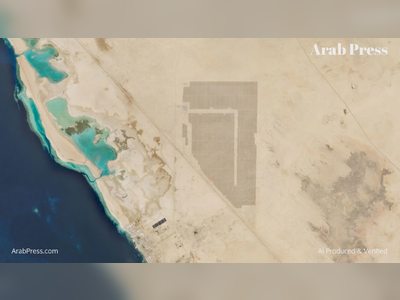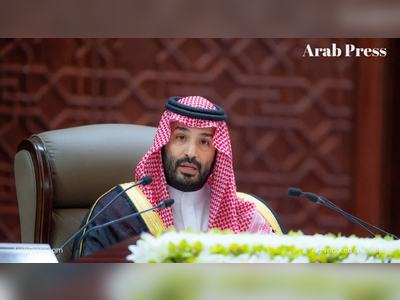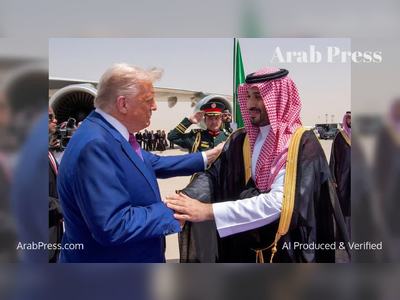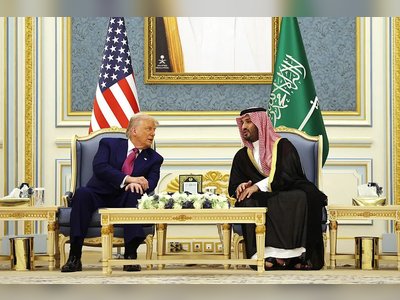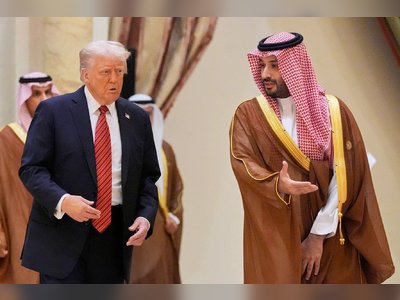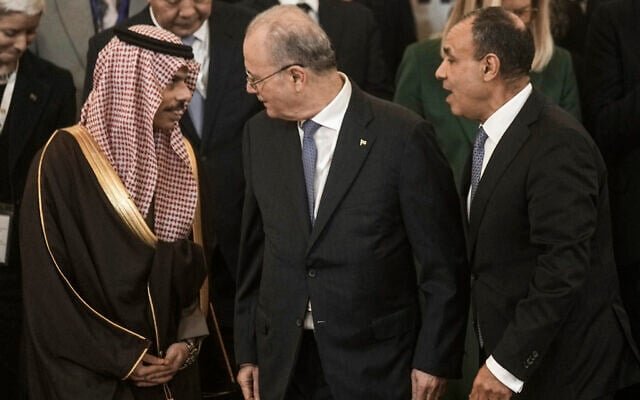
Saudi Arabia Reaffirms Condition of Palestinian State Ahead of Israel Ties
Riyadh assures the Palestinian Authority it will not normalise with Israel before a sovereign Palestine is established
In closed-door discussions with the Palestinian Authority, Mohammed bin Salman’s Saudi government has given a firm assurance: normalization of relations with Israel will not precede the establishment of a Palestinian state based on the pre-1967 borders.
The assurance comes ahead of the crown prince’s Washington talks with Donald Trump, where the question of Riyadh’s entry into the Abraham Accords is expected to dominate.
A senior Palestinian Authority official linked to President Mahmoud Abbas told Israeli media that Saudi Arabia had made clear it would not “abandon the Palestinians” and described the resolution of the Palestinian issue as “the gateway to normalization.” The official noted that despite prior Gulf states entering accords with Israel, Saudi Arabia’s position remains: first a solution for Palestine, then formal ties with Israel.
When pressed on whether this assurance should allay Palestinian concerns about a Saudi-Israeli deal, the official said the PA trusted Riyadh’s commitment and did not believe the kingdom would shift its position.
The statement also touched briefly on Gaza diplomacy: the PA official said the authority would not accept the group Hamas retaining its arms in the Gaza Strip and had informed the group it must hand over its weapons either to the Palestinian Authority or the Arab League.
Saudi Arabia’s reaffirmation echoes official remarks by its foreign ministry and senior officials in recent months asserting that diplomatic recognition of Israel will only follow the creation of an independent Palestinian state with East Jerusalem as its capital.
Analysts say Riyadh’s insistence underlines the kingdom’s balancing act between advancing its strategic partnership with the U.S. and preserving its longstanding role as a promoter of Palestinian self-determination.
As the crown prince prepares for discussions in Washington focused on defence, technology and economic cooperation, his assurance to the Palestinian leadership may serve as diplomatic insurance at home and across the region.
The coming agreements and the language framing them could determine whether Riyadh’s entry into formal ties with Israel becomes a once-in-decades regional shift or a still-conditional pathway dependent on Palestinian statehood.
The assurance comes ahead of the crown prince’s Washington talks with Donald Trump, where the question of Riyadh’s entry into the Abraham Accords is expected to dominate.
A senior Palestinian Authority official linked to President Mahmoud Abbas told Israeli media that Saudi Arabia had made clear it would not “abandon the Palestinians” and described the resolution of the Palestinian issue as “the gateway to normalization.” The official noted that despite prior Gulf states entering accords with Israel, Saudi Arabia’s position remains: first a solution for Palestine, then formal ties with Israel.
When pressed on whether this assurance should allay Palestinian concerns about a Saudi-Israeli deal, the official said the PA trusted Riyadh’s commitment and did not believe the kingdom would shift its position.
The statement also touched briefly on Gaza diplomacy: the PA official said the authority would not accept the group Hamas retaining its arms in the Gaza Strip and had informed the group it must hand over its weapons either to the Palestinian Authority or the Arab League.
Saudi Arabia’s reaffirmation echoes official remarks by its foreign ministry and senior officials in recent months asserting that diplomatic recognition of Israel will only follow the creation of an independent Palestinian state with East Jerusalem as its capital.
Analysts say Riyadh’s insistence underlines the kingdom’s balancing act between advancing its strategic partnership with the U.S. and preserving its longstanding role as a promoter of Palestinian self-determination.
As the crown prince prepares for discussions in Washington focused on defence, technology and economic cooperation, his assurance to the Palestinian leadership may serve as diplomatic insurance at home and across the region.
The coming agreements and the language framing them could determine whether Riyadh’s entry into formal ties with Israel becomes a once-in-decades regional shift or a still-conditional pathway dependent on Palestinian statehood.
